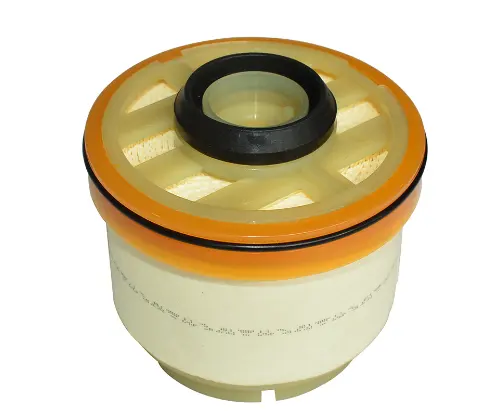Aug . 17, 2024 18:33 Back to list
Exploring the Benefits of Using Reusable Oil Filters for Eco-Friendly Maintenance
The Benefits and Importance of Reusable Oil Filters
In the realm of automotive maintenance and environmental conservation, one innovative solution stands out reusable oil filters. These filters not only enhance the performance of engines but also contribute significantly to sustainability. As technology advances, the automotive industry is increasingly recognizing the necessity of adopting practices that are both economically viable and environmentally friendly. The reusable oil filter is a prime example of such a practice, promising benefits that extend far beyond the garage.
Understanding Reusable Oil Filters
A reusable oil filter is designed to be cleaned and reused multiple times, in contrast to traditional disposable filters that are typically used once and discarded. They are made from durable materials, often featuring metal components that can withstand the harsh conditions of engine oil filtration. This resilience not only allows for extended use but also supports the filter's performance over a longer period.
Environmental Advantages
One of the most compelling reasons to switch to reusable oil filters is their environmental impact. Conventional oil filters are made from a combination of steel, plastic, and various chemicals, and when disposed of improperly, they can contribute to land and water pollution. In the United States alone, millions of filters end up in landfills every year, which can leach harmful substances into the soil and water.
In contrast, reusable filters significantly reduce waste. By eliminating the need for constant disposal, these filters help lower the volume of hazardous materials that enter landfills. Furthermore, the long lifespan of reusable filters means that fewer resources are consumed in the manufacturing process, leading to a lower carbon footprint.
Economic Benefits
reusable oil filter

Not only do reusable oil filters support environmental sustainability, but they can also save vehicle owners money. While the initial investment for a reusable filter may be higher than that of a disposable filter, the fact that they can be cleaned and reused multiple times translates to significant cost savings over time. This is especially beneficial for fleet operators and automotive professionals who change oil frequently.
In addition, the quality of a reusable oil filter can often surpass that of traditional options, leading to improved engine performance. A well-functioning oil filter helps maintain engine cleanliness, reduces wear, and increases the longevity of the engine overall. Therefore, the use of reusable filters can lead to savings on repairs and maintenance in the long run.
Performance and Maintenance
Using a reusable oil filter may require a slightly different maintenance routine compared to disposable filters. Regular cleaning and inspection are crucial to ensure that the filter continues to function effectively. This may involve rinsing and degreasing the filter or replacing any worn-out parts. However, many manufacturers provide instructions and kits to simplify this process.
In terms of performance, reusable filters are often designed to provide superior filtration. They can capture smaller particles, thereby ensuring cleaner oil circulates through the engine. This results in better fuel efficiency and improved overall performance.
Conclusion
In conclusion, the adoption of reusable oil filters is a positive step towards a more sustainable and economical approach to automotive maintenance. By reducing waste, saving costs, and enhancing engine performance, reusable filters present a compelling case for vehicle owners and industry professionals alike. As we increasingly face the challenges of environmental degradation and resource scarcity, embracing innovative solutions like reusable oil filters can help pave the way for a more responsible and sustainable future in automotive care.
-
Toyota Corolla Hatchback Cabin Air Filter – High Efficiency & Easy Installation
NewsJul.08,2025
-
Premium Canister Fuel Filter Supplier High Quality Oil Filtration Solutions
NewsJul.08,2025
-
Premium Car Filter Oil Solutions Leading Car Oil Filter Exporter Hyundai Car Oil Filter Exporters
NewsJul.08,2025
-
Buy 17x21x1 Air Filter – Improve Air Quality & HVAC Efficiency Affordable Air & Cabin Air Filter Cost
NewsJul.07,2025
-
High-Performance Filter Element Fuel – Durable, Efficient & Cost-Effective Solutions
NewsJul.07,2025
-
High-Quality Engine Filter and Cabin Filter for Superior Airflow Affordable Cabin and Engine Air Filter Cost
NewsJul.07,2025


